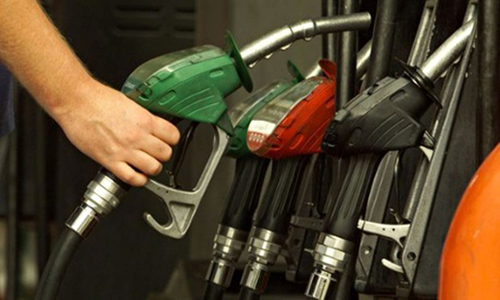ISLAMABAD: The Oil & Gas Regulatory Authority (Ogra) on Monday conceded to have allowed gas companies charge about 6-7 per cent higher system losses to consumers of re-gasified liquefied natural gas (RLNG) for at least five years costing them Rs350 billion resulting in significantly higher rates.
Official record seen by Dawn suggest that various departments of Ogra have been debating as to how to rectify the accounting and regulatory mistakes that went into the regulator’s determination process due to misunderstanding and non-implementation of a 2016 decision of the Economic Coordination Committee (ECC) of the Cabinet.
The matter has become legally challenging owing to non-availability of Ogra’s quorum. As a result, the monthly price notification for RLNG stakeholders has been withheld instead of its usual circulation in the first week of each month. Two relevant departments — gas and finance — of Ogra are blaming each other for the slip-up.
Interestingly, the gas companies — the Sui Northern Gas Pipelines Ltd and Sui Southern Gas Company Ltd — have been claiming much lower losses of less than 4pc for RLNG but were given a benefit of about 11pc losses. At disadvantage are the industrial, CNG, power plants and bulk consumers using RLNG.
The record suggests a ECC decision of June 2016 provided for “distribution loss to be determined and charged at actual. The said loss for customers located on high pressure transmission lines as well as those customers who are willing to lay their dedicated line shall also be determined and charged as actual.
However, for other customers on distribution lines, an actual average unaccounted for gas (UFG) for the last financial year will be taken in the determination.”
The ECC decision also held that transmission losses to be charged at actual subject to a maximum of 0.5pc.
During proceedings for determination of final revenue requirement (FRR) of the SNGPL for the year 2018-19, “it transpired that no effective and objective determination was undertaken by Ogra relating to distribution loss” and whatever had been claimed by the SNGPL, had been proposed by Ogra’s Gas Department and taken as “determination of authority.”
Even during the proceedings, it was pointed out by member gas that ‘determination’ actually required independent and in depth review, verification, analysis, due diligence and calculation of actual purchases, sales, gas internally consumed, free gas facility, amount claimed against rupture etc and ‘actual’ amount of distribution and transmission loss should then be calculated independently by Ogra professionals which could then be taken as determined.
The member gas has put on record that provisional RLNG price calculations for the month of July, which contains 17.83pc loss as calculated for the SSGCL and 11.45pc for the SNGPL were unconvincing.
For domestic gas, there is a maximum benchmark of 5pc plus 2.5pc of UFG whereas due to “incorrect interpretation and non-determination of actual UFG”, imported RLNG which is otherwise already expensive, is allowed so called actual UFG, making it more expensive by about Rs100-115 per mmcfd.
Recently, Ogra allowed 6.92pc of the UFG on indigenous gas in the FRR for the year 2018-19 whereas for the same year UFG on RLNG was being given at 11.45pc to the SNGPL. On the other hand, Ogra is allowing 6.91pc of the UFG on indigenous gas in the FRR for the year 2017-18 whereas for the same year UFG on RLNG is being given at 17.83pc to the SSGCL.
The member gas demanded that such state of affairs needs a very serious review of Ogra’s internal working and approach currently in place to accepting UFG on RLNG. The authority needs to formulate an appropriate strategy to ensure proper due diligence, evaluation, analysis, verification and then independent determination of the actual distribution loss relating to RLNG of both the companies.
He also demanded that even in past, FRRs wherever UFG was ‘determined’ more than the allowed percentage for indigenous gas, the same should also be got verified and re-determined, for all the previously-notified provisional RLNG prices.
This should be done initially through inhouse expertise and then hiring independent technical consultants as soon as possible.
The member finance, on the other hand, also put on record that UFG was the domain of gas department and was incorporated in the RLNG prices as per its determination. In the matter of UFG determination, the regulator had to rely on the technical expertise of gas department and the technical member (gas).
He advised that “gas department should review the UFG figure and submit revised UFG to be charged to RLNG consumers, to member gas for approval. After approval it may be conveyed to the Finance Department for computation or RLNG price accordingly.”
Mainly because of the legal challenges on record, the former Ogra chairperson ‘withdrew’ approval of the LNG notification for July a day before her retirement. Member finance Ogra also withdrew approval on the RLNG price. As such, a notification on LNG price would only be issued once quorum is complete at an unknown date in future.
Published in Dawn, August 25th, 2020















































